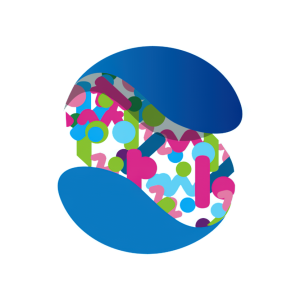Seres Therapeutics Presents Phase Ill Results of SER-109 for Recurrent C. Difficile Infection at the Digestive Disease Week (DDW) Annual Meeting
Seres Therapeutics, Inc. (Nasdaq: MCRB) presented promising data from its Phase 3 ECOSPOR III study, demonstrating that SER-109 effectively prevents recurrent C. difficile infections by establishing beneficial gut microbes. After one week of treatment, SER-109 increased microbiome diversity, producing fatty acids that inhibit C. difficile growth. The therapy showed an 88% success rate in preventing infection recurrence at eight weeks. Seres aims to submit a Biologics License Application by mid-2022, potentially leading to the first FDA-approved microbiome therapeutic by early 2023.
- SER-109 demonstrated an 88% success rate in preventing recurrent CDI infections compared to 60% in the placebo group.
- The rapid increase in microbiome diversity and fatty acid production suggests a strong mechanism for preventing infection.
- None.
– In ECOSPOR lll, Seres’ lead therapeutic candidate incorporated itself rapidly and durably into the microbiome to prevent C. difficile infection recurrence –
– Within one week of treatment, SER-109 was observed to diversify the microbiome and support the production of fatty acids that inhibit the growth of C. difficile –
“These results suggest that our investigational microbiome therapeutic, SER-109, is a potentially fast-acting intervention that can provide durable relief from recurrent C. difficile infections when administered to vulnerable patients,” said
Seres expects to finalize a Biologics License Application (BLA) submission for SER-109 with the
Engraftment of SER-109 is Durable through 24 Weeks (Poster # 3701110)
The ECOSPOR III Phase 3 study (NCT03183128), a multicenter, randomized, placebo-controlled clinical trial that enrolled 182 adults with rCDI, previously demonstrated that SER-109 prevented rCDI in
A pre-planned exploratory analysis from the ECOSPOR III trial shows that approximately two-thirds of CDI recurrences occurred within the first two weeks following antibiotic treatment for CDI – the window of vulnerability – when the microbiome is further decimated and C. difficile spores, untouched by antibiotics, are free to germinate into toxin-producing vegetative bacteria.
“These findings suggest that the first two weeks following antibiotic treatment is the time when microbiome therapeutics have the greatest potential benefit, by restoring bacterial diversity and disrupting the cycle of recurrent C. difficile,” said
SER-109 introduces a diverse consortium of bacterial species into the gut in the form of spores, which rapidly germinate and incorporate themselves into the microbiome, showing up in the stool as vegetative bacteria. This process is called engraftment.
Within a week of SER-109 treatment, the number of new bacterial species in stool increased and remained significantly higher than the placebo group for the entire 24-week study period. Bacterial diversity rebounded more slowly and to a lesser degree in the placebo group.
The pattern of results was the same regardless of which antibiotic participants received, vancomycin or fidaxomicin.
Impact of SER-109 on Fatty Acid Production (Abstract # 3700066)
To better understand how SER-109 prevents rCDI on the molecular level in a post-hoc analysis, stool samples collected from ECOSPOR III participants were analyzed for changes in their microbial makeup and fatty acid concentrations across the eight weeks following SER-109 treatment. Fatty acids with long and medium carbon chain lengths, such as butyrate, valerate and hexanoate, have been shown to inhibit the growth of C. difficile.
For participants who received SER-109, butyrate, valerate and hexanoate levels rapidly increased, starting within the two-week window of vulnerability, and remained significantly higher than the placebo group for the eight-week data analysis period.
Among members of the placebo group who experienced a CDI recurrence, valerate levels tended to be lower compared to members of the placebo group who did not experience a recurrence, further suggesting that valerate plays a protective role against rCDI.
These data and data published previously in the
Posters and presentations will be available for 90 days on the DDW conference website.
About SER-109
SER-109 is an oral microbiome therapeutic candidate consisting of a consortium of highly purified Firmicutes spores, which normally live in a healthy microbiome. SER-109 is designed to prevent further recurrences of CDI by modulating the disrupted microbiome to a state that resists C. difficile colonization and growth. The SER-109 manufacturing purification process is designed to remove unwanted microbes, thereby reducing the risk of pathogen transmission beyond donor screening alone. The FDA has granted SER-109 Breakthrough Therapy designation and Orphan Drug designation for the treatment of rCDI.
About
For more information, please visit www.serestherapeutics.com.
Forward-Looking Statements
This press release contains forward-looking statements within the meaning of the Private Securities Litigation Reform Act of 1995. All statements contained in this press release that do not relate to matters of historical fact should be considered forward-looking statements, including the mechanism of action of SER-109; the timing of a BLA filing and potential product launch of SER-109; the ultimate safety and efficacy profile; and the possibility of SER-109 being a first in class therapeutic.
These forward-looking statements are based on management’s current expectations. These statements are neither promises nor guarantees, but involve known and unknown risks, uncertainties and other important factors that may cause our actual results, performance or achievements to be materially different from any future results, performance or achievements expressed or implied by the forward-looking statements, including, but not limited to, the following: we have incurred significant losses, are not currently profitable and may never become profitable; our need for additional funding; our limited operating history; the impact of the COVID-19 pandemic; our unproven approach to therapeutic intervention; the lengthy, expensive and uncertain process of clinical drug development; our reliance on third parties and collaborators to conduct our clinical trials, manufacture our product candidates and develop and commercialize our product candidates, if approved; and our ability to retain key personnel and to manage our growth. These and other important factors discussed under the caption “Risk Factors” in our Quarterly Report on Form 10-Q filed with the
View source version on businesswire.com: https://www.businesswire.com/news/home/20220522005035/en/
PR Contact
kainsworth@serestherapeutics.com
IR Contact
ctanzi@serestherapeutics.com
Source:






